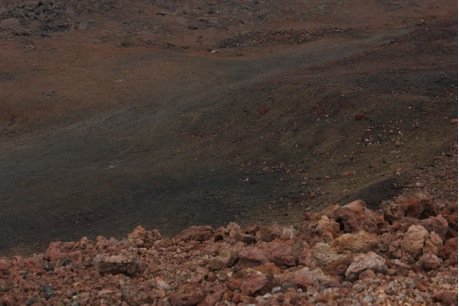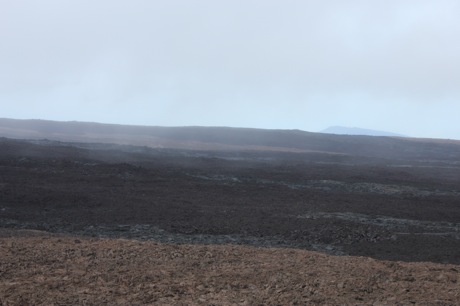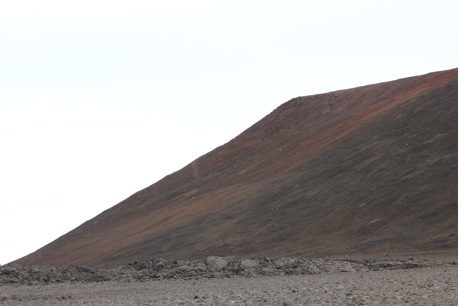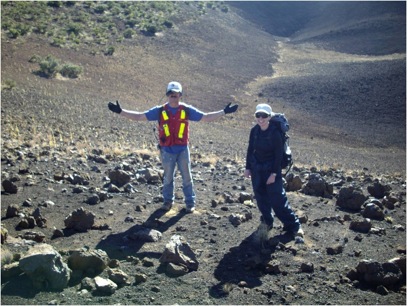2011 Annual Science Report
 University of Hawaii, Manoa
Reporting | SEP 2010 – AUG 2011
University of Hawaii, Manoa
Reporting | SEP 2010 – AUG 2011
Analogue Environment Deployments on the Big Island
Project Summary
We are using the saddle region on the Big Island of Hawaii, in collaboration with NASA teams and the Canadian Space Agency in order to test technology related to sustainable living on the moon. My group will evaluate the utility of 3-D visualization in robotic navigation, in particular for the ex-ploration of lava tubes.
Project Progress
We have been planning the 2012 analog deployment (PROVES) on the slopes of Mauna Kea, in collaboration with NASA teams and the Canadian Space Agency. The focus of this deployment will be on testing technology related to in-situ resource utilization on the Moon, such as the manned and partially autonomous rovers developed at the Canadian Space Agency, and the RESOLVE project at NASA. My group will evaluate the utility of 3-D visualization in traverse planning, robotic navigation, and the exploration of lava tubes (ARTSE, or Augmented Reality Technology for Space Exploration).
We also continued planning for future deployments: in particular, a four-month exploration simulation scheduled for early 2013, called HI-SEAS (Hawaii Space Exploration Analog and Simulation). Although the focus of the deployment will be human factors research, the participants will carry out astrobiologically-relevant field research (e.g. geobiology in lava caves) as part of a high-fidelity mission simulation.
We were able to leverage work on this project to gain further funding; in particular, a $948k 3-year grant from the NASA Human Research Program (approximately 1/3 of which will be managed at University of Hawaii), which supports the HI-SEAS project.

Potential site for HI-SEAS habitat on Mauna Loa side of Saddle Road on the Big Island of Hawai’i.

Area around potential HI-SEAS habitat site. Note the low vegetation and isolation.

Apollo Valley on the slopes of Mauna Kea, a Potential site for the 2012 NASA PROVES field deploy-ment.

ARTSE being evaluated by CSA astronaut Chris Hadfield and geologist Caroline Morriset in the PROVES deployment on the slopes of Mauna Kea.
Publications
-
Binsted, K., Kobrick, R. L., Griofa, M. Ó., Bishop, S., & Lapierre, J. (2010). Human factors research as part of a Mars exploration analogue mission on Devon Island. Planetary and Space Science, 58(7-8), 994–1006. doi:10.1016/j.pss.2010.03.001
- Battler, M.M., Bishop, S.L., Kobrick, R.L., Binsted, K. & Harris, J. (2011). The “Us versus Them” Phenomenon: Lessons from a Long Duration Human Mars Mission Simulation. 62nd International Astronautical Congress. Space Life Sciences Symposium, Session: Behaviour, Performance and Psychosocial Issues in Space. Cape Town, South Africa.
- Hunter, J. & Binsted, K. (2010). Food preparation strategies and food satisfaction under Mars mission analogue conditions. Proceedings of the International Astronautical Conference. Czech Republic.
-
PROJECT INVESTIGATORS:
-
PROJECT MEMBERS:
Christian Anderson
Collaborator
Dean Eppler
Collaborator
Bruce Halpern
Collaborator
John Hamilton
Collaborator
Jean Hunter
Collaborator
Bill Larson
Collaborator
Martin Picard
Collaborator
Jerry Sanders
Collaborator
Marc Siebert
Collaborator
-
RELATED OBJECTIVES:
Objective 1.1
Formation and evolution of habitable planets.
Objective 2.1
Mars exploration.
Objective 4.1
Earth's early biosphere.
Objective 4.3
Effects of extraterrestrial events upon the biosphere
Objective 6.1
Effects of environmental changes on microbial ecosystems
Objective 6.2
Adaptation and evolution of life beyond Earth
Objective 7.1
Biosignatures to be sought in Solar System materials
